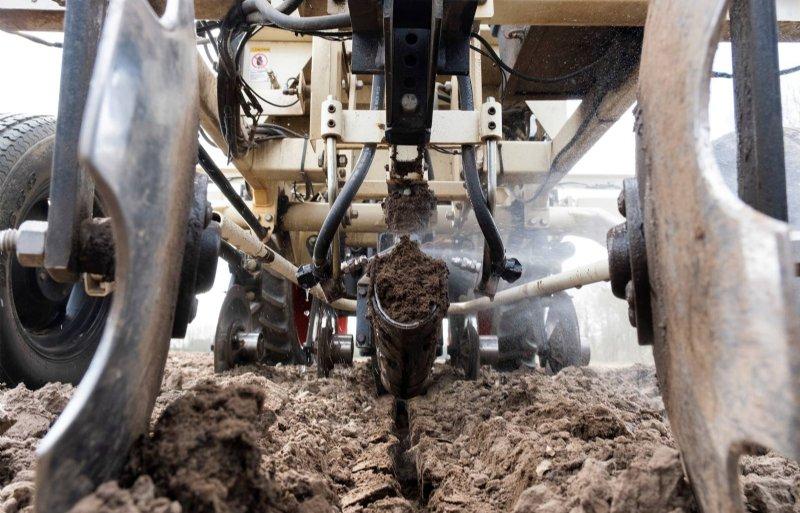© Twan Wiermans
The cabinet is investing over 1.2 billion euros from the National Growth Fund in projects and start-ups focused on innovative agriculture and horticulture solutions. These include the development of cultured meat, resilient crops, high-tech machinery and circular plastics and building materials.
In addition, the agricultural sector could eventually benefit from the 500 million euros that the government is investing in the development of green hydrogen and the 136 million euros that will go to new technology for clean water.
A notable government investment is in cellular agriculture. This involves the cultivation of cells to produce alternatives to animal meat or dairy products. The 'Cellular Agriculture' project thus responds to the protein transition.
Promising
Although the products are not yet on the shelves, the scientific progress is called promising. Several international companies working on cultured meat have established themselves in the Netherlands because of the knowledge available here.
The commitment of 60 million euros from the National Growth Fund is intended to build an ecosystem around cellular agriculture. The proposal for funding was submitted by a new consortium of twelve organizations (universities, NGOs, start-ups and industry) called Cellular Agriculture Netherlands. But the ambition of this industry and of the government goes further.
Education and research
.A follow-up request of €252 million to €382 million for a larger growth plan, which has not yet been committed, is for scale-up and education and research in the field of cellular agriculture.
Expectations around the meat and dairy alternatives are high. With the broader growth plan, the sector is expected to have contributed 10 to 14 billion euros to Dutch earning power by 2050.
Visionary leadership
With the commitment from the National Growth Fund, the government is showing visionary leadership, says Ira van Eelen of Cellular Agriculture Netherlands. According to her, the Netherlands is the ideal country for cellular agriculture to thrive. Professor Mark Post of Maastricht University was the first to present a hamburger made of cultured meat in 2013.
'The Netherlands has a rich history of laying the foundation for cellular agriculture. It is a global leader in biotechnology and alternative protein and food innovation. It is the second largest exporter of traditional agricultural products in the world,' says Van Eelen.
'We were the first country to invest in public research on cultured meat and presented a proof of concept hamburger to the world. This is a great way to grow sustainably, while our growth is currently under pressure,' says Van Eelen.
New breeding techniques
Crop-XR is another innovative project that can receive up to €43 million from the National Growth Fund. This consortium of universities and breeders' umbrella organization Plantum focuses on new breeding techniques for the development of resilient crops.
Some 450 million euros will go to Nxtgen Hightech. Three hundred companies, knowledge institutions and (industry) organizations are working together on a new generation of high-tech equipment for laser communication, semiconductors, energy and agrifood.
This consortium will be responsible for the development of new technologies for the development of resilient crops.
Social innovations
A major grant recipient is the Biotech Booster with 246 million euros. This project wants to give socially impactful innovations a good start.
One of the participants, HollandBio, points out that investments by Dutch biotech companies are substantial. Five biotech companies, including DSM, Enza Zaden and Rijk Zwaan, are in the top twenty of companies investing in research and product development in the Netherlands.
Source: newharvest
